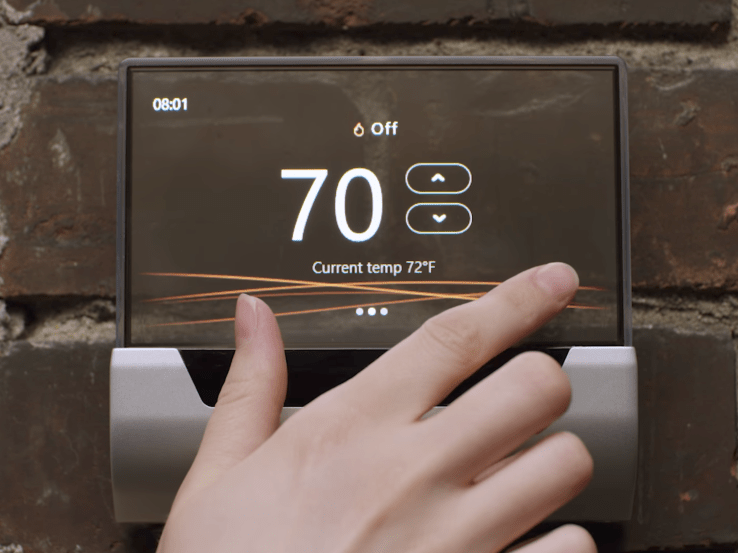

The latest addition to the smart thermostat space is a product that includes Microsoft’s Cortana virtual assistant.
We’re all familiar with the rise of the internet-enabled thermostats, thanks to the development of companies like Nest, and now Microsoft is entering the space after it partnered with Johnson Controls to develop a product called GLAS.
The rather stunning looking thermostat was quietly unveiled in the YouTube video below — hat tip The Verge for spotting.
GLAS includes a touchscreen to allow manual controls and check on information, including temperature, air quality readings and calendar schedule. Cortana gives the device another twist by enabling voice commands. The video claims sensors allow GLAS to detect when people are in a room or not, allowing it to operate heating and air control systems more efficiently.
The thermostat is built on Microsoft’s Windows 10 IoT Core and, Cortana aside, the Redmond-based company said it will include support for Azure cloud services, too. (Although at this point it isn’t exactly clear which services and how.)
There’s no word of pricing or availability for GLAS, we’ve contacted Microsoft to get more details.
Microsoft said last year it would open Cortana up to third-parties — both on the software and hardware side of things — and this effort from Johnson Control is one of the first to emerge, alongside a smart speaker from Harman Kardon that was teased last year.
GLAS isn’t the first thermostat to make use of a smart assistant and voice recognition tech, however. Ecobee is building Alexa into its thermostats and smart light switches, while the Amazon is also headed to places like the TV experience after Dish put it into its set-top boxes.
We’ve said before that third-party partnerships are key to Amazon building Alexa into a dominant force in the home, and this collaboration with Johnson Controls — which looks impressive in the promotional materials — shows that the same applies to Microsoft and Cortana.

